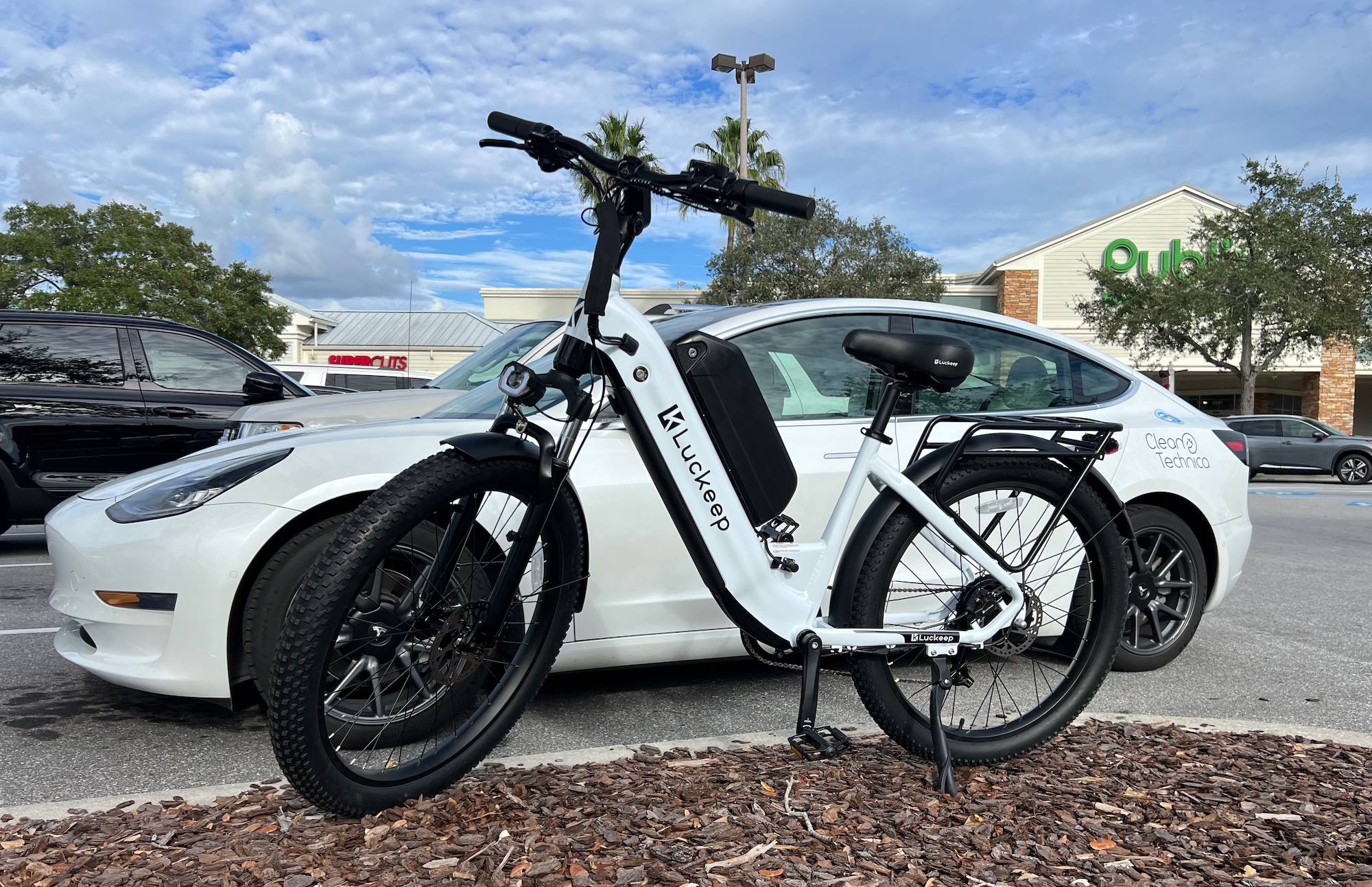Sign up for daily news updates from CleanTechnica on email. Or follow us on Google News!
Recently I had the pleasure of photographing a 1913 Detroit Electric being towed to an exhibition by a Ford F-150 Lightning, and it was quite the sight!
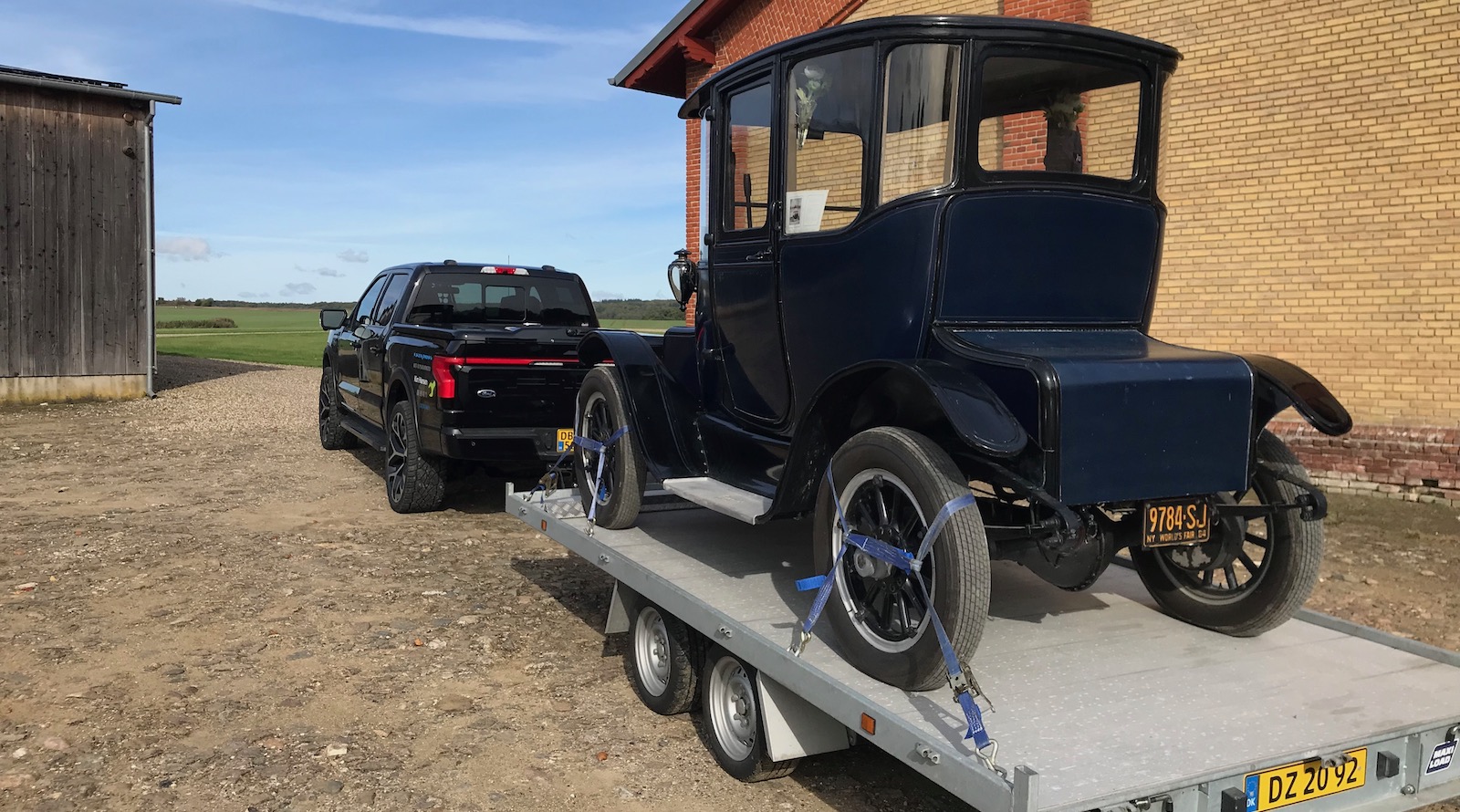
I have covered the Detroit Electric in detail earlier, so I asked the owner of the F-150 Lightning how in the world it was possible to have this car registered in Denmark? I mean, I’ve heard a few have made it to Norway, but Denmark, with the rules we have? No way…
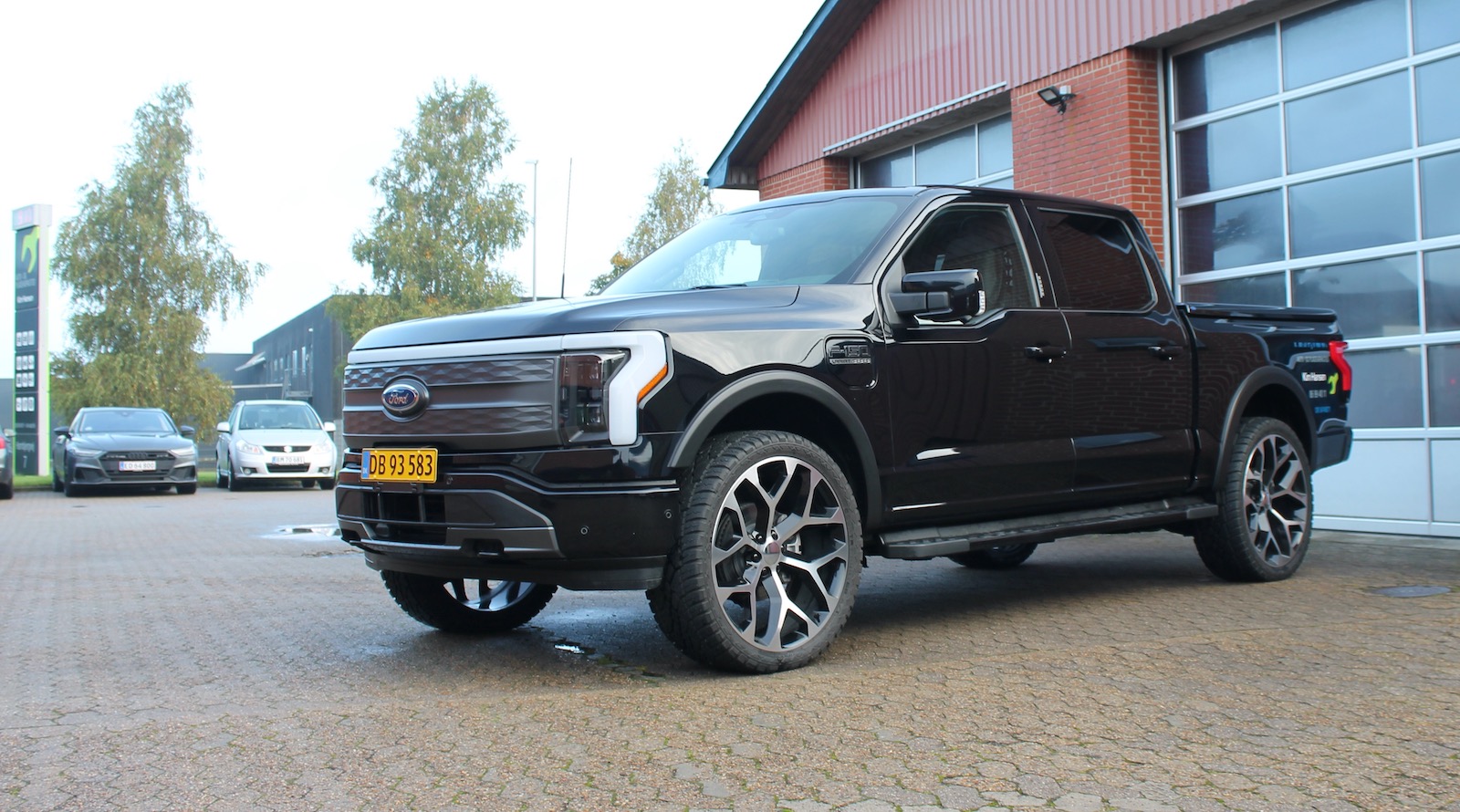
Kim Hansen of KH-auto fills me in with the excruciating details, and I will try to convey the procedure below.
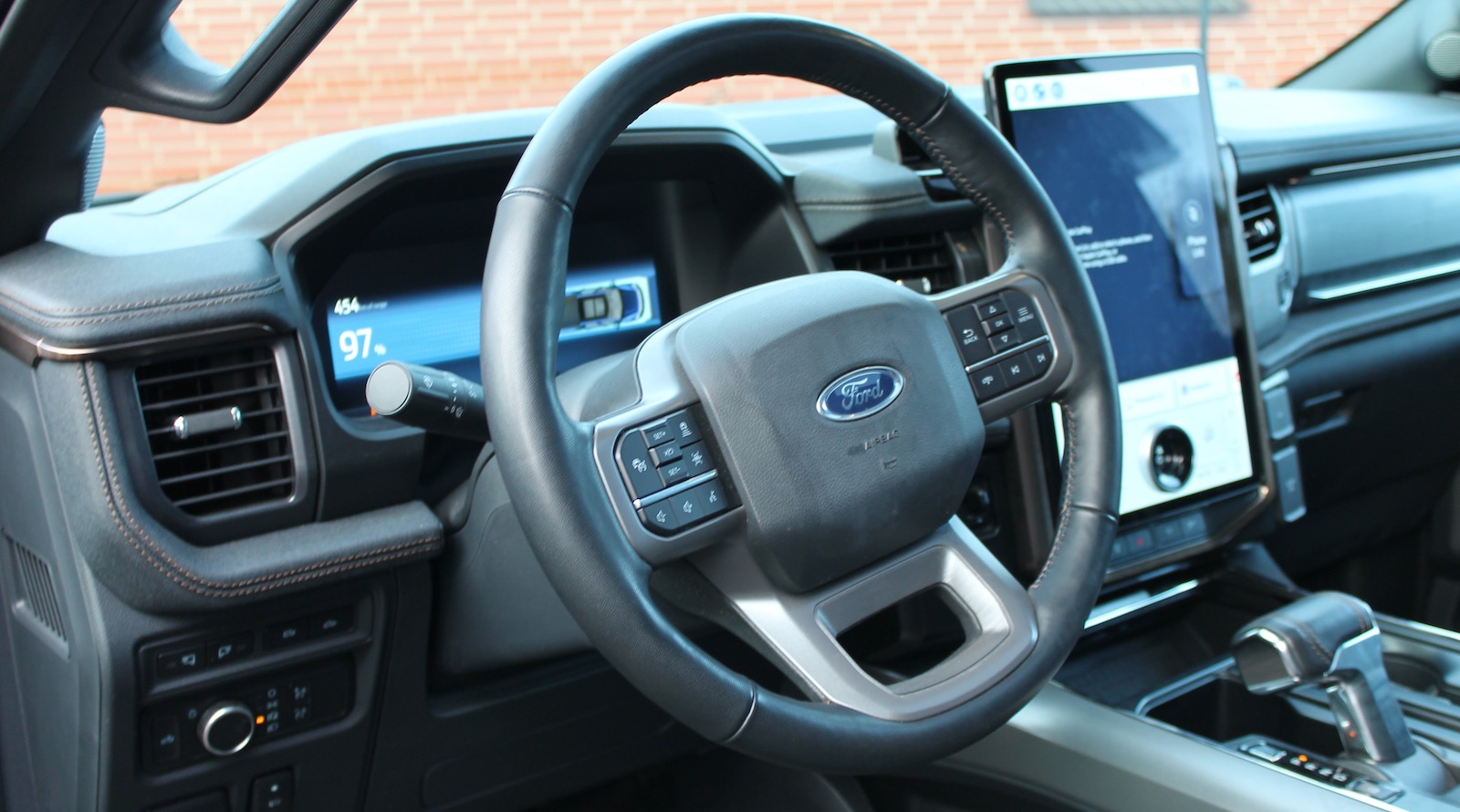
It is quite a hassle to import a car without EU code approval. If you buy a new one, right out of the factory, you have to have a middleman register it to get an American registration certificate (it is very uphill or virtually impossible to do this outside the USA).
If you buy a used one, you must have the previous registration certificate with you. The tax authorities in Denmark will demand that.
Then you send it home in a container (a Ford F-150 requires a 40-foot container, because it is just over 6 meters long with tow hitch and fenders) with insurance on the freight. Not all shipping companies can ship cars out of the USA. But USA-shipping can help you.
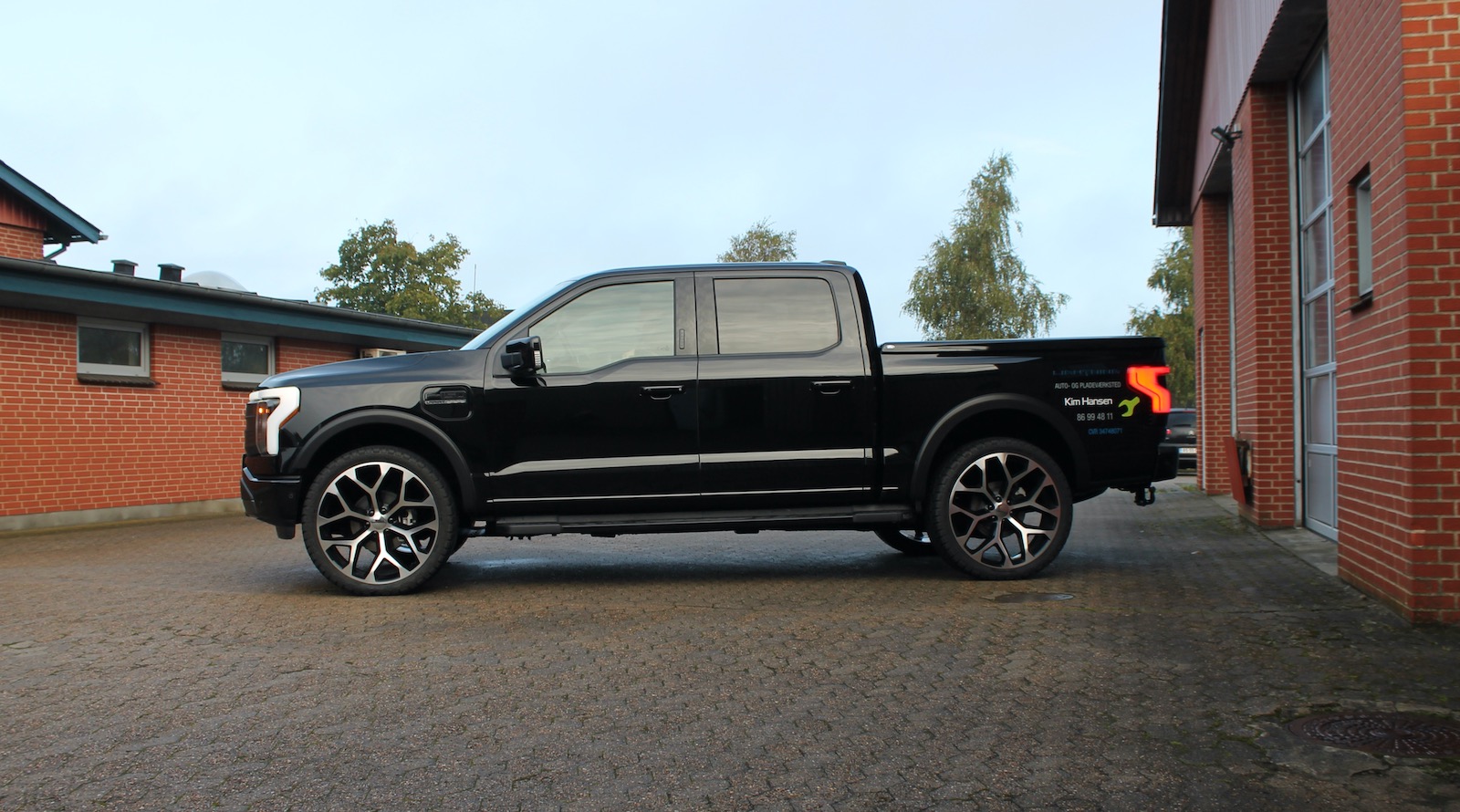
If you need the car with what in Denmark we call “yellow plates,” meaning it’s meant for work and only for a driver and one passenger, you must have a registered company and be approved to import goods from outside the EU.
When the car arrives in Denmark, it must be approved, customs approved, registration certificate paid, and registered.
You must use a Danish data declaration, and on the Ford F-150 Lightning in particular, only E-Car in the Danish city of Randers has the right permissions to get this done.
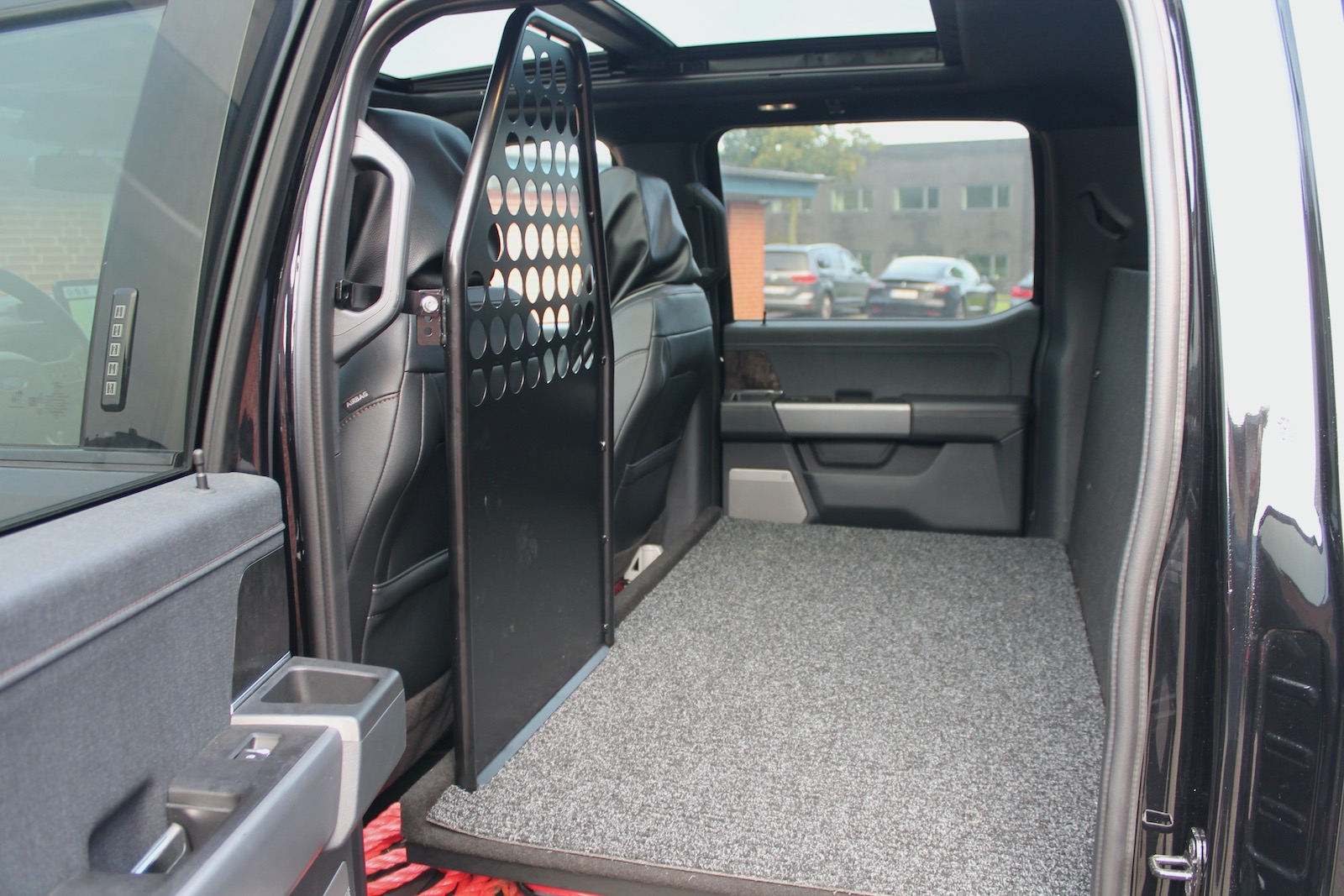
Driving on Danish roads as a new car, the Ford F-150 Lightning must have yellow/amber turn signals from the rear. It’s not exactly easy to make this happen, because the rear lights are can-bus controlled. A computer in each rear light housing control the blinking with data communication to the LED lights.
Kim had E-car figure this out for him. The taillights had to be sent to Germany to have the housing opened with heat and a yellow LED light source installed inside, and then glued back together again.
Under the car there are 2 boxes that split the signal to the lights and send power to the turn signals. E-Car really struggled with this so they had to try several times before it worked.
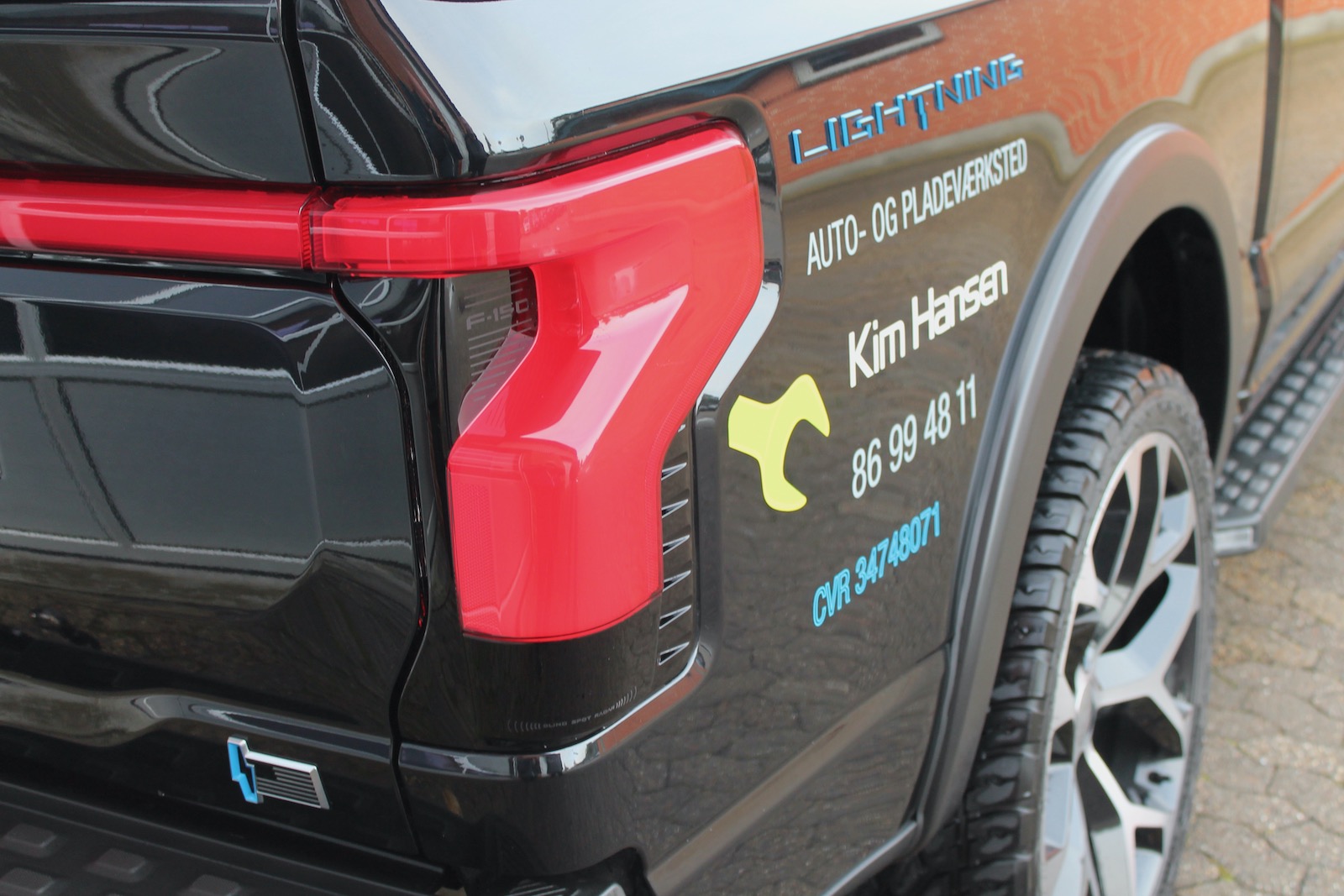
To make the turn signals work cost about DKK 20,000 including VAT ($3,000).
To be able to tow, the tow hitch must be EU approved. The original Ford hitch from the factory in the USA cannot be approved. The Danish company Brink makes one that works.
The 26-inch wheels fitted on Kim’s F-150 can only be bought in the USA. They are bigger than the original ones, so the front inner fenders need to be changed so that they don’t scrape. They are 4% larger in roll circumference. Maximum by law in Denmark is +5%. The large rims fitted with the enormous tires (325/35R26) protrude 2 cm beyond the bodywork, but luckily a set of original Ford F-150 extenders fit perfectly.
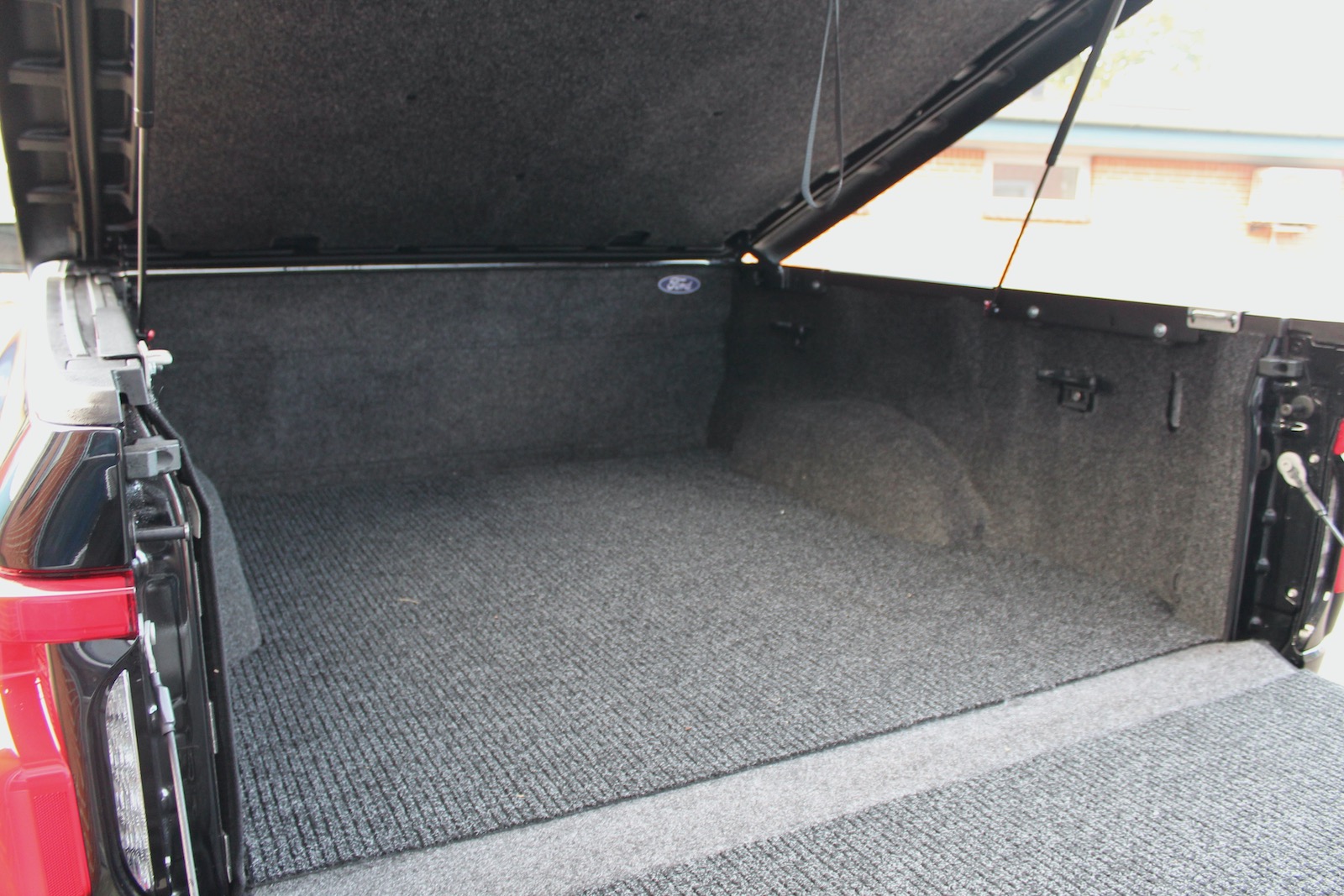
So there you have it. I’m tempted to say: Don’t try this at home (in the EU), but if you do, be aware you will need a lot of patience. A Cybertruck, you ask? Well, on that thing, there are things like steer-by-wire and sharp edges, so it might be a whole lot easier to just wait.
Kim Hansen did not want to wait on the F-150 Lightning, so he made the bet, and he was victorious. The car is used daily in his auto shop, and it gives him the green profile he was looking for, and customers are genuinely surprised to find it is electric.
Kim’s Ford F-150 Lightning is the Lariat trim, with the 131 kWh battery pack. His experience so far in terms of real world range is about 400 km (250 miles) with normal motorway speed, and about 300 km (190 miles) towing a car at highway speed (like the Detroit Electric).
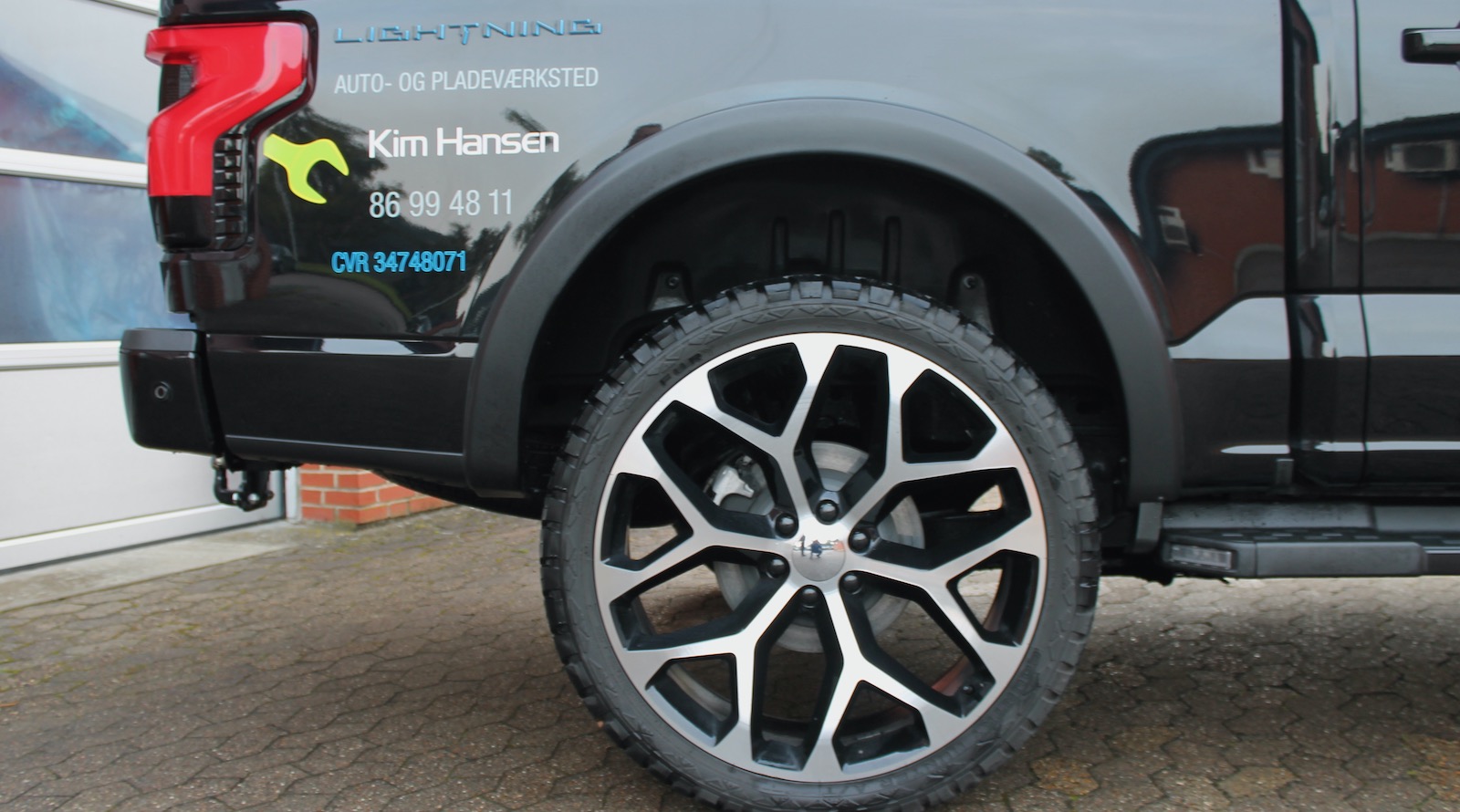

Have a tip for CleanTechnica? Want to advertise? Want to suggest a guest for our CleanTech Talk podcast? Contact us here.
Latest CleanTechnica.TV Videos
CleanTechnica uses affiliate links. See our policy here.
CleanTechnica’s Comment Policy


